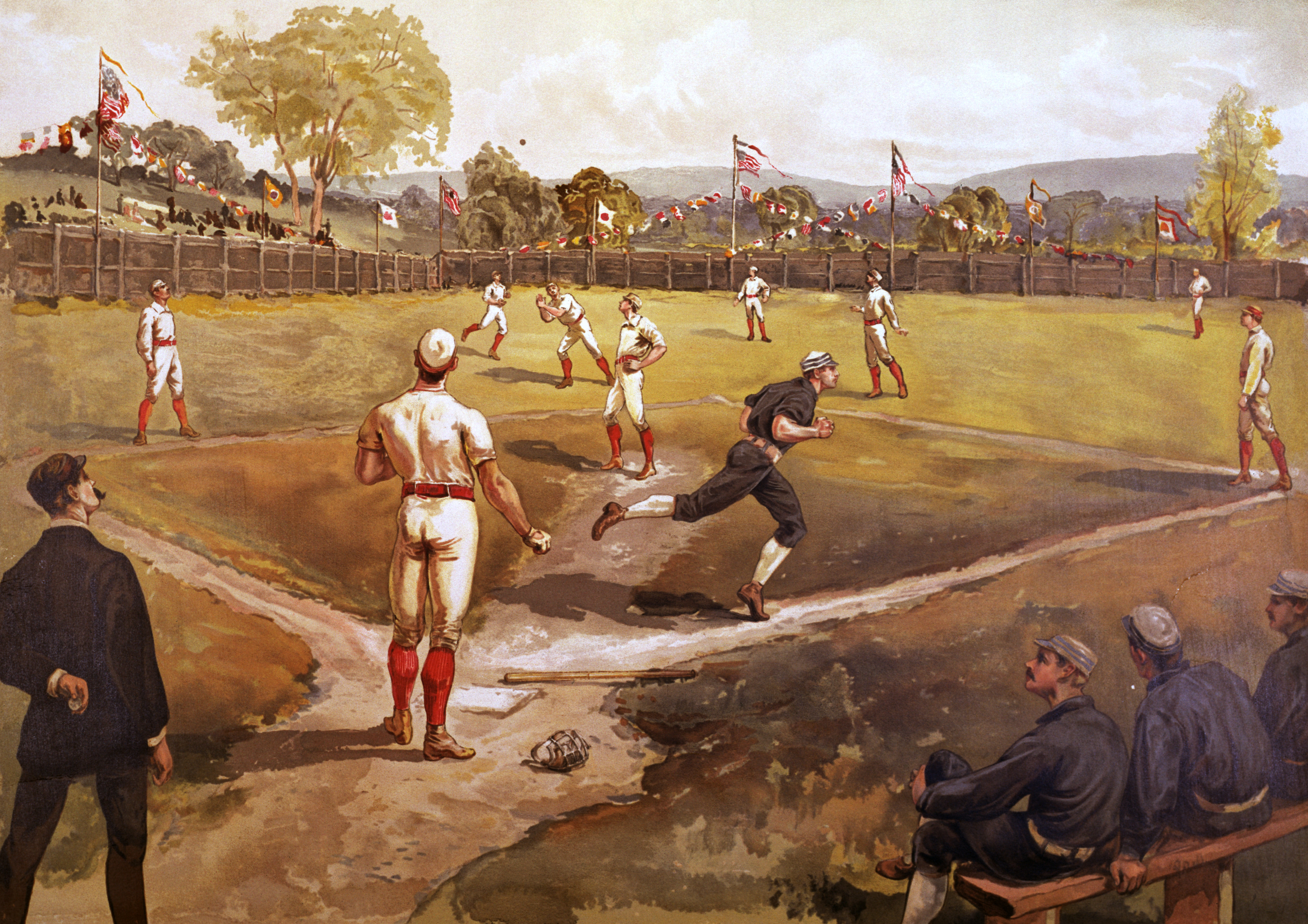Why I love baseball's Hot Stove Season
It's something to talk about, nay, obsess about, while there's no baseball being played


A free daily email with the biggest news stories of the day – and the best features from TheWeek.com
You are now subscribed
Your newsletter sign-up was successful
For baseball obsessives, it rarely gets better than Hot Stove Season, the late autumn interlude when a frenzy of trades, signings, and surprise retirements remake Major League Baseball teams. Potential Hall of Famers can be traded, sometimes for each other. World Series-winning teams can be completely blown up in "fire sales." Hell, even managers can be traded.
True seamheads rank the Hot Stove right up there with a one-game playoff or the first week of "real baseball" in April, (when the regular season finally ends spring training) as the greatest platforms for speculation, second-guessing, and statistical analysis. The MLB Network devotes several hours of programming a day to a show called Hot Stove, and the ascendance of fantasy baseball and sabermetrics have only added to the fascination. Shocking, heartbreaking, and legacy-defining twists can and do happen in the Hot Stove.
Historian James D. Hardy's book Baseball and the Mythic Moment traces the legend of the Hot Stove to 19th-century America, where men congregated at the local general store and "sat around an iron pot-bellied stove" to discuss "weather, politics, the police blotter," and baseball. General stores are no longer America's social nexus, but beginning around the time of the winter meetings and stretching until around New Year's, Hot Stove Season provides delicious drama to keep baseball fans warm during the long, cold winter.
The Week
Escape your echo chamber. Get the facts behind the news, plus analysis from multiple perspectives.

Sign up for The Week's Free Newsletters
From our morning news briefing to a weekly Good News Newsletter, get the best of The Week delivered directly to your inbox.
From our morning news briefing to a weekly Good News Newsletter, get the best of The Week delivered directly to your inbox.
The New York Yankees and Boston Red Sox have had some pretty vicious battles on the field, but the Hot Stove is when the people in their front offices get their knuckles dirty. During the 2002-3 offseason, then-Red Sox President Larry Lucchino threw a fit when the Yankees outbid him for Cuban pitcher Jose Contreras. Upon hearing of the agreement to a $32 million contract, Lucchino dubbed his rivals "the Evil Empire," a name eventually embraced by both the intended recipients and those who hate them.
Four years after his legendary tantrum, Lucchino and the Sox outbid the Yankees and spent $104 million for the services of much-hyped Japanese pitcher Daisuke Matsusaka. Over the years, the Yankees would poach their division rivals of beloved outfielders Johnny Damon and Jacoby Ellsbury, but no Hot Stove battle more defines the recent fates of the two clubs quite like the Alex Rodriguez saga during the 2003-4 offseason.
In December 2003, Boston had a deal in place to acquire Rodriguez, then the best player in baseball and years away from being outed as a steroid user, from the Texas Rangers. The deal was soon voided because Rodriguez made so many concessions to the Red Sox that the players' union believed the contract could undermine the power of the union. A short time later, the Yankees swooped in and successfully completed a deal for A-Rod. Though the Bronx Bombers were the apparent victors of the Hot Stove Season, the Red Sox three World Series titles and A-Rod's myriad scandals made Boston the hands-down winner of that legendary Hot Stove dust-up.
This offseason's Hot Stove has already had some juicy subplots, such as the recent megacontract signings of the three best free agents (Jason Heyward, David Price, and Zach Greinke), who all signed with division rivals. These moves instantly remade the power dynamics of their divisions, infuriated the sensibilities of many fans, and emboldened the new teams with the arrogance that can only come from wildly outspending the competition. By adding even more talent to a team that went to the National League Championship Series last year, the Chicago Cubs, who have gone more than a century without a championship, became favorites to win it all next year, with observers using words like "historic" to describe the team's potential lineup.
A free daily email with the biggest news stories of the day – and the best features from TheWeek.com
From a fan's perspective, however, the defections of Heyward, Price, and Greinke probably won't devastate their former teams. Of the three, Grienke was the longest tenured with his former club, topping out at three seasons.
Revenue sharing has made it easier for small-market teams like the Pittsburgh Pirates or the Cincinnati Reds to hold onto valuable talent for longer than just the five requisite seasons of service time before a player can declare for free agency. The expansion of the playoff pool to include one-third of all teams in the league makes teams less likely to act as "sellers" if a blue-chip player's contract is nearing its conclusion. This might make Hot Stove megadeals less likely, but it enhances the drama of smaller deals, making the addition of a back-of-the-rotation pitcher or a fourth outfielder something to talk about.
Terry Cashman's execrable 1981 novelty song "Talkin' Baseball" waxed nostalgic for the early 1960s, where a bunch of squares could sit around doing what the song's title says, while "scorning" things the kids were getting into, such as rock and roll and marijuana. Sounds like quite the party, right? Still, the tune has a point. Baseball is a game made for talkin'.
Like the game itself, baseball fandom is a lot of standing around waiting for a brief burst of explosive excitement. But when that moment finally comes to pass, baseball geeks will deconstruct it to a nanotechnological degree. The Hot Stove is like that. It's something to talk about, nay, obsess about, while there's no baseball being played.
Anthony L. Fisher is a journalist and filmmaker in New York with work also appearing at Vox, The Daily Beast, Reason, New York Daily News, Huffington Post, Newsweek, CNN, Fox News Channel, Sundance Channel, and Comedy Central. He also wrote and directed the feature film Sidewalk Traffic, available on major VOD platforms.
-
 The ‘ravenous’ demand for Cornish minerals
The ‘ravenous’ demand for Cornish mineralsUnder the Radar Growing need for critical minerals to power tech has intensified ‘appetite’ for lithium, which could be a ‘huge boon’ for local economy
-
 Why are election experts taking Trump’s midterm threats seriously?
Why are election experts taking Trump’s midterm threats seriously?IN THE SPOTLIGHT As the president muses about polling place deployments and a centralized electoral system aimed at one-party control, lawmakers are taking this administration at its word
-
 ‘Restaurateurs have become millionaires’
‘Restaurateurs have become millionaires’Instant Opinion Opinion, comment and editorials of the day
